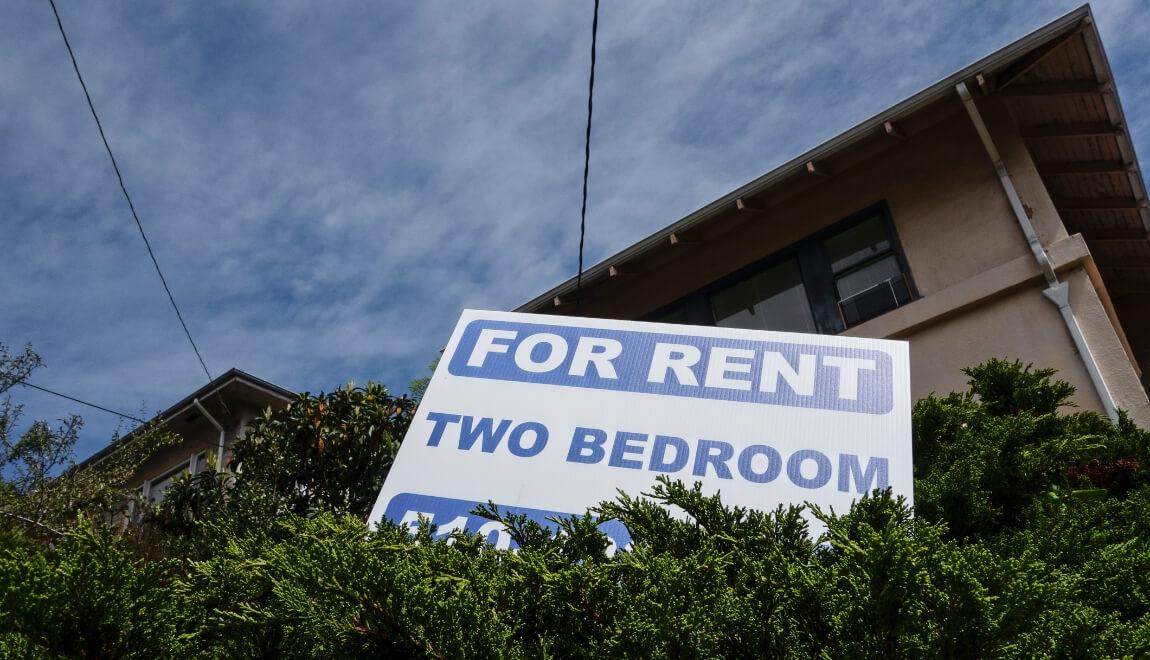Can you rent an apartment with bad credit? Yes — but it takes preparation.
If your credit score is low, you’ll need to build trust with potential landlords. The key: demonstrate reliability, offer financial proof, and be transparent about your credit situation.
Let's explore ways you can rent an apartment with bad credit.
In this article:
- What Is a Good Credit Score?
- What Does FICO Stand For?
- What Do Landlords Look for in a Credit Report?
- What If Your Credit Score Is Incorrect?
- Does a Poor Credit Score Disqualify a Renter from Getting an Apartment?
- So How Can I Rent an Apartment with Bad Credit?
Everyone hits a rough patch now and again. Whether it was an unforeseen, sudden event or a steady decline into credit mayhem, you now have bad credit. While you may think it’s impossible to rent an apartment with bad credit, have no fear! It may be more difficult, but it can be done.
The first thing you need to know is: how bad is it, really?
What is a good credit score?
Credit Score Ranges:
-
800+: Excellent
-
740–799: Very Good
-
670–739: Good
-
580–669: Fair
-
<579: Poor
Tip: Many landlords accept scores above 600, but lower scores may require extra documentation or upfront payments.
There are three major credit bureaus you need to be aware of: TransUnion, Equifax, and Experian. You won’t have the same score across all three – each has their own way to determine your FICO score.

What does FICO stand for?
FICO is a company that specializes in “predictive analytics.” (Which is just a fancy term for judging what you might do in the future by what you’ve done in the past.) The name “FICO” is derived from the company’s original name, Fair Isaac Company, which was founded in 1956 by Bill Fair and Earl Isaac. Most major lenders in the country use FICO to determine credit. Your score is determined by a top-secret method that basically includes the following:
- Your payment history
- The length of that history
- How much you use credit
- The mix of your credit (this predicts how well you handle different types of loans, such as a car loan, credit cards, etc.)
Each of the above sections is given a weight, with your payment history as the most important factor – 35 percent of your total score.
Another 30 percent of your credit score is determined by your credit utilization. Do you routinely max out your credit cards? If so, then you utilize too much credit. This indicates that you don’t handle debt responsibly. The best way to improve this section of your score is to keep low (or zero) balances on your credit cards. Don’t close these accounts – just pay them down.
Credit cards are very important in showing your ability to handle debt (more so than a car loan because credit cards are revolving balances). On the flip side, credit cards also do the most damage. Keep your balances below six percent.
Why should I leave my credit accounts open?
You have something called a “utilization ratio” that figures into your FICO score. Keeping that line of credit open with a zero balance increases your utilization ratio. The minute you close the account, you no longer have that line of credit to factor into your overall score. Your credit can also suffer if the bank or lender closes your card because you don’t use it.
What do landlords look for in a credit report?
Main Factors Landlords Review:
-
Payment history
-
Rental history and evictions
-
Total debts
-
Bankruptcy status
-
Employment history
Quick Tip: Consistent rent and bill payments weigh more than an old medical bill or student loan.
Landlords aren’t only looking at your credit score in your credit report. Different factors like payment history, debts, bankruptcy, and evictions are taken into consideration as well. Your credit report will also indicate personal information, including your employment history.
Payment history
Your payment history is a big factor in getting approved for a rental. Landlords want to see that your payments are consistently made on time and in full. Whether it’s a car payment, utility bill, or monthly rent, frequent late payments will raise a huge red flag to a potential landlord.
Rental history
Rental history is the biggest indicator to a landlord of how you will be as their tenant. Rental history will reveal any money owed to a previous landlord, any payment reports sent to a credit bureau, and information on where you previously rented, allowing your potential landlord the ability to contact your previous landlord.
Debts
Landlords will also pay attention to any debts or delinquencies. If you’ve been sent to a collection agency for a past eviction, have a repossessed car, or have excessive credit card debt, your rental application will give the landlord reason to pause. Debts like student loans are typically looked at, but they don’t usually disqualify you from being approved for an apartment.
Bankruptcy Status
After you file for bankruptcy, it will stay on your credit report for about 10 years. A bankruptcy record will show all the accounts and companies involved in your bankruptcy, giving your landlord a clear picture of the case. Your landlord will specifically be looking at a pending or a discharged bankruptcy. A pending bankruptcy could make a prospective landlord pause because it means that the tenant could be free from financial obligations if it goes through. A discharged bankruptcy may look better to a landlord since it means the case has concluded.

What if your credit score is incorrect?
Apartment communities typically look for credit scores 600 or above. If yours is lower, the first thing to do is look over your credit report for any mistakes. It’s important to correct mistakes quickly since items can stay on your credit report for up to seven years (except in the case of a bankruptcy, which stays on your report for 10 years). Get these mistakes taken care of and it might improve your score.
To fix a mistake, put it in writing. Explain why the information is inaccurate and send it directly to the credit reporting company. The company will investigate your complaint and respond back in writing within 30 days. If the correction alters your credit report, they will provide you with an updated copy of that, as well.
After contacting the credit reporting company, write to the lending company that made the error and explain why you are disputing the item. Include any documents (such as receipts) you may have to support your claim. If they made a mistake, they must contact the credit reporting companies and have your information corrected.
Does a poor credit score disqualify a renter from getting an apartment?
A poor credit score doesn’t mean you can’t rent, but it does mean you’ll have to make concessions. It may seem unfair that you have to jump through hoops to be able to rent if you have a low credit score but try to think like a landlord. Your landlord is essentially taking a chance on all their tenants. If you default on rent, the landlord’s income will take a major hit. The tenant and landlord relationship is a symbiotic one. If you’re willing to meet your new landlord halfway, you could be well on your way to your new rental.
How to Rent an Apartment with Bad Credit
-
Be Honest About Your Credit Explain your situation upfront and show you're working to improve it.
-
Provide Proof of Income Bring recent pay stubs, bank statements, or a letter from your employer.
-
Offer a Larger Deposit Paying two months’ rent in advance may ease landlord concerns.
-
Use a Cosigner A cosigner with strong credit can boost your application.
-
Find a Roommate with Good Credit Their stronger financials may balance out your weaknesses.
-
Request a Landlord Reference Letter Past landlords who confirm on-time payments can help sway decisions.
-
Create a Renter’s Resume Include job history, references, and rental history to show you’re responsible.
-
Set Up Automatic Rent Payments This reassures landlords about on-time rent delivery.
-
Look for No-Credit-Check Apartments Independent landlords may be more flexible than corporate complexes.
-
Fix Errors on Your Credit Report Dispute inaccuracies to potentially boost your score quickly.
Quick Tip: Use AnnualCreditReport.com to access free reports from TransUnion, Equifax, and Experian.

This article was originally published on October 6, 2022, and has been updated.
Frequently Asked Questions About Renting an Apartment with Bad Credit
Does a high income help offset poor credit?
It helps, especially if your monthly income is 3x the rent, but it doesn’t guarantee approval.
Can I rent with a past eviction?
Yes — if you provide references or proof of resolved debts.
Does a low credit score and no rental history disqualify me?
No, having a low credit score and no rental history doesn’t automatically disqualify you from renting, but you’ll need to be willing to make some concessions. A potential landlord could ask you to sign with a cosigner or guarantor, make you pay a larger security deposit, and need a clear picture of your monthly income and employment status. As long as you have a steady and reliable financial history, a potential landlord will more than likely be willing to work with you.
Can I rent with a 500 credit score?
Yes, but you’ll likely need to offer a higher deposit or get a cosigner.






